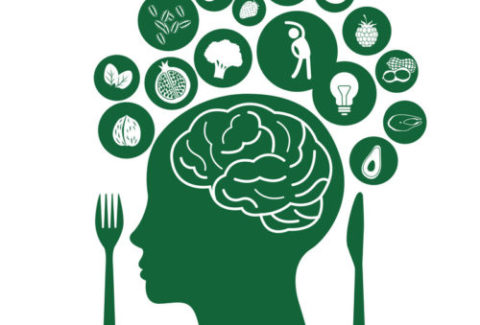Unwrapping the Dangers of Processed Food
In our fast-paced modern world, processed food has become a ubiquitous part of our diets. These convenient, ready-to-eat options line supermarket shelves and fill vending machines, promising quick satisfaction and ease of consumption.[1] However, beneath their enticing packaging lies a dark reality – processed food is inherently unhealthy and poses significant risks to our overall well-being. In this article, we explore the detrimental effects of processed food on our health and shed light on the importance of making conscious choices for a nourishing and balanced diet.
Nutritionally-Void[2] and High Sugar Content
Processed food is often stripped of its natural nutrients during the refining and manufacturing process. Essential vitamins, minerals, and fiber are lost, leaving behind empty calories. As a result, these foods fail to provide the nourishment our bodies need to function optimally. Further, many processed foods are laden with added sugars, including sugary drinks, cereals, snacks, and desserts. Excessive sugar consumption can lead to weight gain, insulin resistance, and an increased risk of diabetes and heart disease[3].
Unhealthy Fats[4] and Sodium Overload
Trans fats[5] and unhealthy saturated fats are prevalent in processed foods to enhance flavor and extend shelf life. Consuming these fats in excess raises LDL cholesterol levels, increasing the risk of heart disease and stroke. Processed foods are also notorious for their high sodium content[6], which serves as a preservative and enhances taste. Excessive salt intake can lead to hypertension and contribute to cardiovascular issues.
Chemical Additives and Weight Gain and Obesity
To prolong shelf life and enhance taste and appearance, processed foods are also often loaded with artificial additives, preservatives, and flavor enhancers. These chemical additives[7] may trigger allergic reactions or have unknown long-term health effects. In addition, the combination of high sugar, unhealthy fats, and empty calories in processed food promotes overeating and weight gain. Regular consumption of these foods has been linked to obesity, a significant risk factor for various chronic health conditions.
Digestive Issues, Addiction, and Cravings
The lack of fiber in processed foods can lead to digestive problems, such as constipation and irregular bowel movements. A diet rich in whole, natural foods with fiber promotes better digestion and gut health. The high sugar, salt, and unhealthy fat content in processed foods can also trigger addictive eating behaviors[8], leading to cravings and difficulty in breaking free from unhealthy dietary patterns.
In Sum
Understanding the detrimental effects of processed food on our health is crucial in making informed dietary choices. A diet dominated by processed foods lacks the essential nutrients our bodies need for optimal function and increases the risk of various health issues, including obesity, diabetes, and heart disease. By prioritizing whole, nutrient-dense foods and minimizing processed food consumption, we can take significant steps toward improving our well-being and longevity.
Embracing a balanced diet rich in fruits, vegetables, whole grains, lean proteins, and healthy fats can have a transformative impact on our health and quality of life. Remember that small changes can make a big difference. Let us take charge of our health by making mindful food choices and nurturing our body with the nutrition it deserves. Let us work with our patients and clients and help them do the same.
What’s Next:
- Check out our previous articles in this series.
- Stay on the lookout for upcoming articles in this series, delving deeper into the world of nutrition and its impact on well-being.
- Gather more information on the role of nutrition in overall health and wellness, staying updated with the latest research and recommendations.
- Continue to have more frequent conversations with your clients about nutrition, understanding potential barriers, and helping them overcome obstacles to optimal eating habits.
We acknowledge that habit change can be challenging, but motivation is a potent force that can be nurtured by guiding our patients through the stages of change. As clinicians, having awareness, understanding, insight, and knowledge about nutrition is key to inspiring positive transformations. This series aims to equip you with the essential tools, so you empower yourself and help your patients and clients do the same on their process to optimal well-being.
Until our next article, let us master how to continue our process of discovery and healing through the power of nutrition.
[1] Brunner, Thomas A., Klazine Van der Horst, and Michael Siegrist. “Convenience food products. Drivers for consumption.” Appetite 55.3 (2010): 498-506.
[2] Foster, Jaime S., et al. “A qualitative investigation into the US Department of Agriculture 18‐item Household Food Security Survey Module: Variations in interpretation, understanding and report by gender.” Journal of Public Affairs 19.3 (2019): e1861.
[3] Steele, Eurídice Martínez, et al. “Ultra-processed foods and added sugars in the US diet: evidence from a nationally representative cross-sectional study.” BMJ open 6.3 (2016): e009892.
[4] Stefan, Norbert. “Causes, consequences, and treatment of metabolically unhealthy fat distribution.” The lancet Diabetes & endocrinology 8.7 (2020): 616-627.
[5] Dhaka, Vandana, et al. “Trans fats—sources, health risks and alternative approach-A review.” Journal of food science and technology 48 (2011): 534-541.
[6] Carrigan, Anna, et al. “Contribution of food additives to sodium and phosphorus content of diets rich in processed foods.” Journal of Renal Nutrition 24.1 (2014): 13-19.
[7] Awuchi, Chinaza Godswill, et al. “Food additives and food preservatives for domestic and industrial food applications.” Journal of Animal Health 2.1 (2020): 1-16.
[8] Schiestl, Emma T., et al. “A narrative review of highly processed food addiction across the lifespan.” Progress in Neuro-Psychopharmacology and Biological Psychiatry 106 (2021): 110152.









